2-Day Solo Food, Wine, and Shopping Adventure in Rwanda
Rwanda
2 days
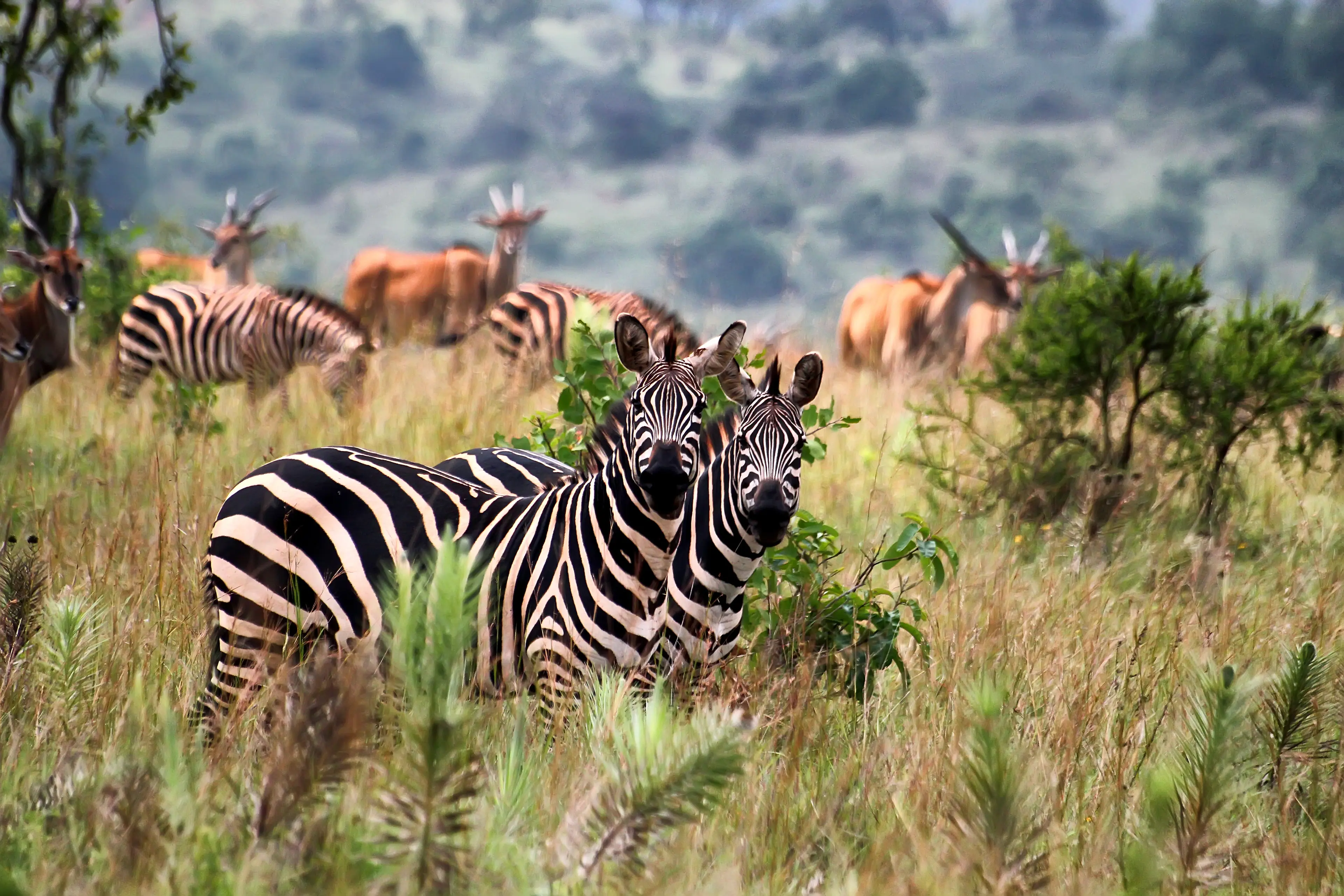

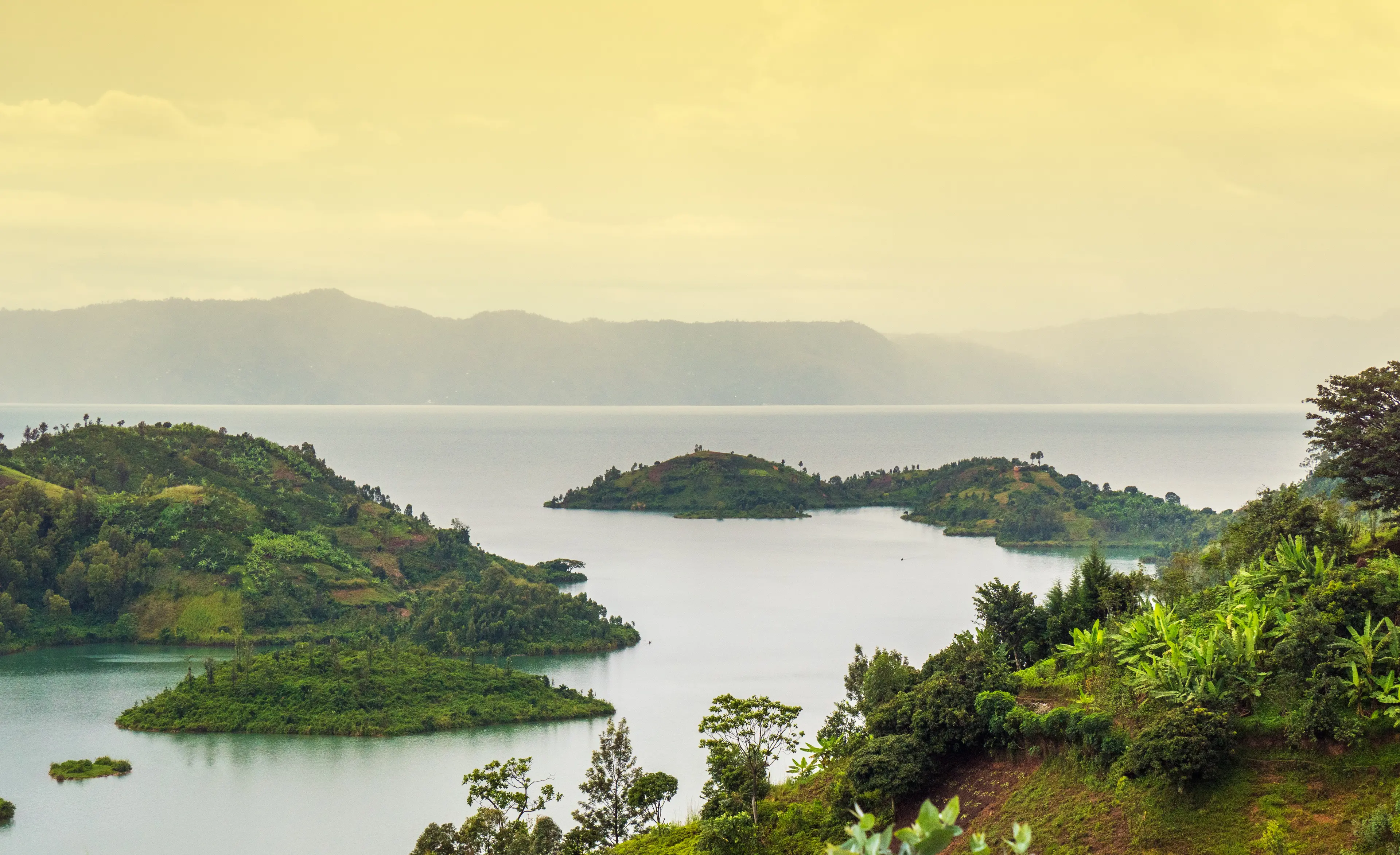
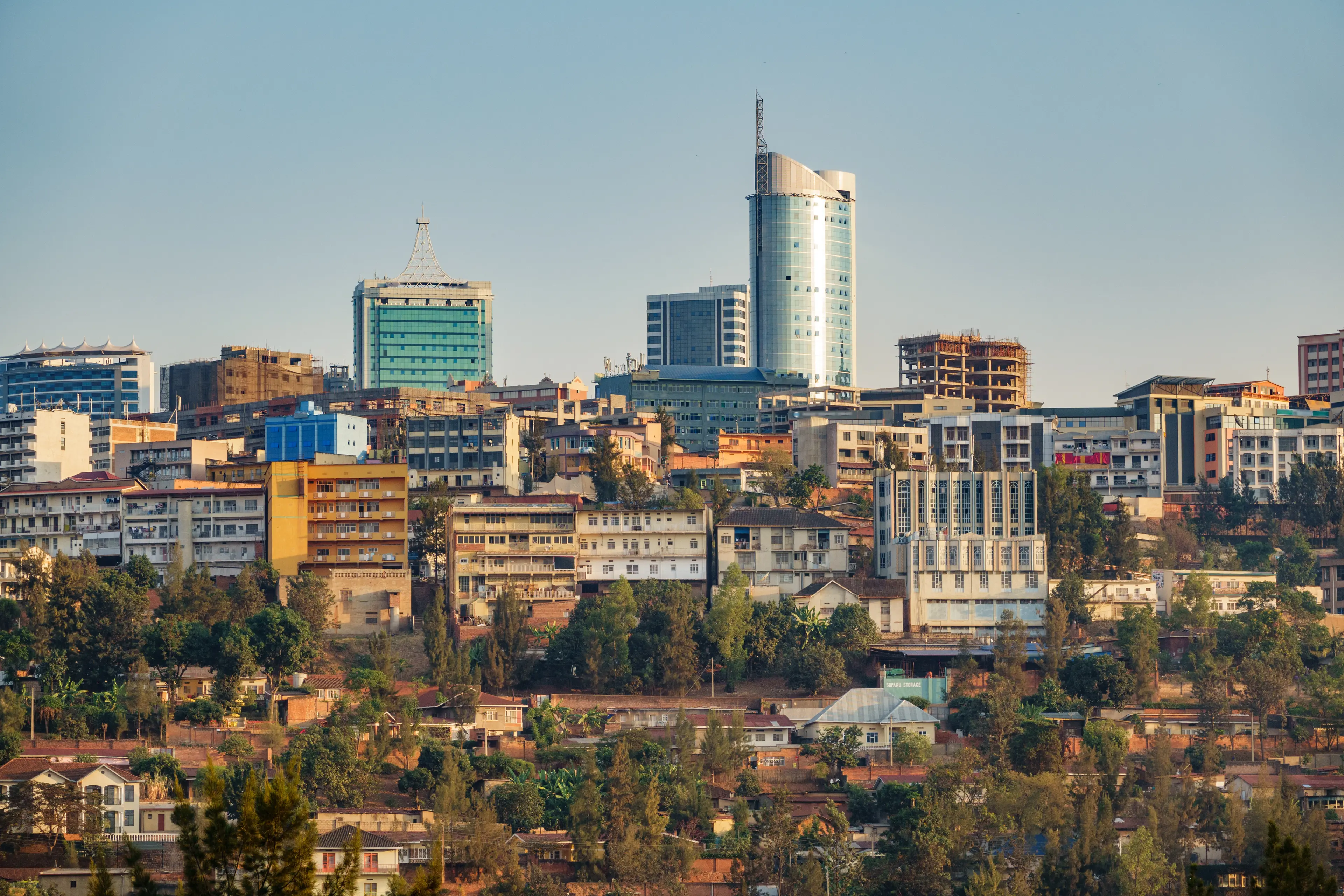

About Rwanda
Rwanda, the "Land of a Thousand Hills," offers a captivating blend of scenic beauty, diverse wildlife, and cultural richness. This East African gem is renowned for its mountain gorillas, found in the misty highlands of Volcanoes National Park. The vibrant city of Kigali, with its bustling markets and modern infrastructure, serves as a gateway to the country's numerous attractions. Rwanda's rich history is evident in sites like the Kigali Genocide Memorial, while its commitment to conservation is showcased in Akagera National Park, home to the Big Five. The tranquil shores of Lake Kivu offer relaxation and water activities. Experience the unique culture through traditional music and dance, local cuisine, and interacting with the friendly locals. Rwanda's compact size allows for easy travel, making it an ideal destination for an unforgettable African adventure.
2-Day Itinerary
Day 2
Trekking in Volcanoes National Park and Relaxing in Ruhengeri
Morning
Travel to the Volcanoes National Park, home to the mountain gorillas. Take a guided trek to see these magnificent creatures in their natural habitat.
Lunch
Enjoy a packed lunch during your trek in the Volcanoes National Park. The park authorities provide packed lunches for trekkers.
Afternoon
Continue your exploration of Volcanoes National Park. You may also get a chance to see other wildlife like golden monkeys and a variety of bird species.
Dinner
Have dinner at a local restaurant in Ruhengeri, near the Volcanoes National Park. Try local dishes like 'Ibirayi' (Rwandan-style potatoes) and 'Akabenz' (pork).
Evening
Relax at your hotel in Ruhengeri after a long day of trekking. Enjoy the serene surroundings and reflect on your experiences of the day.
Attractions in Itinerary (5)
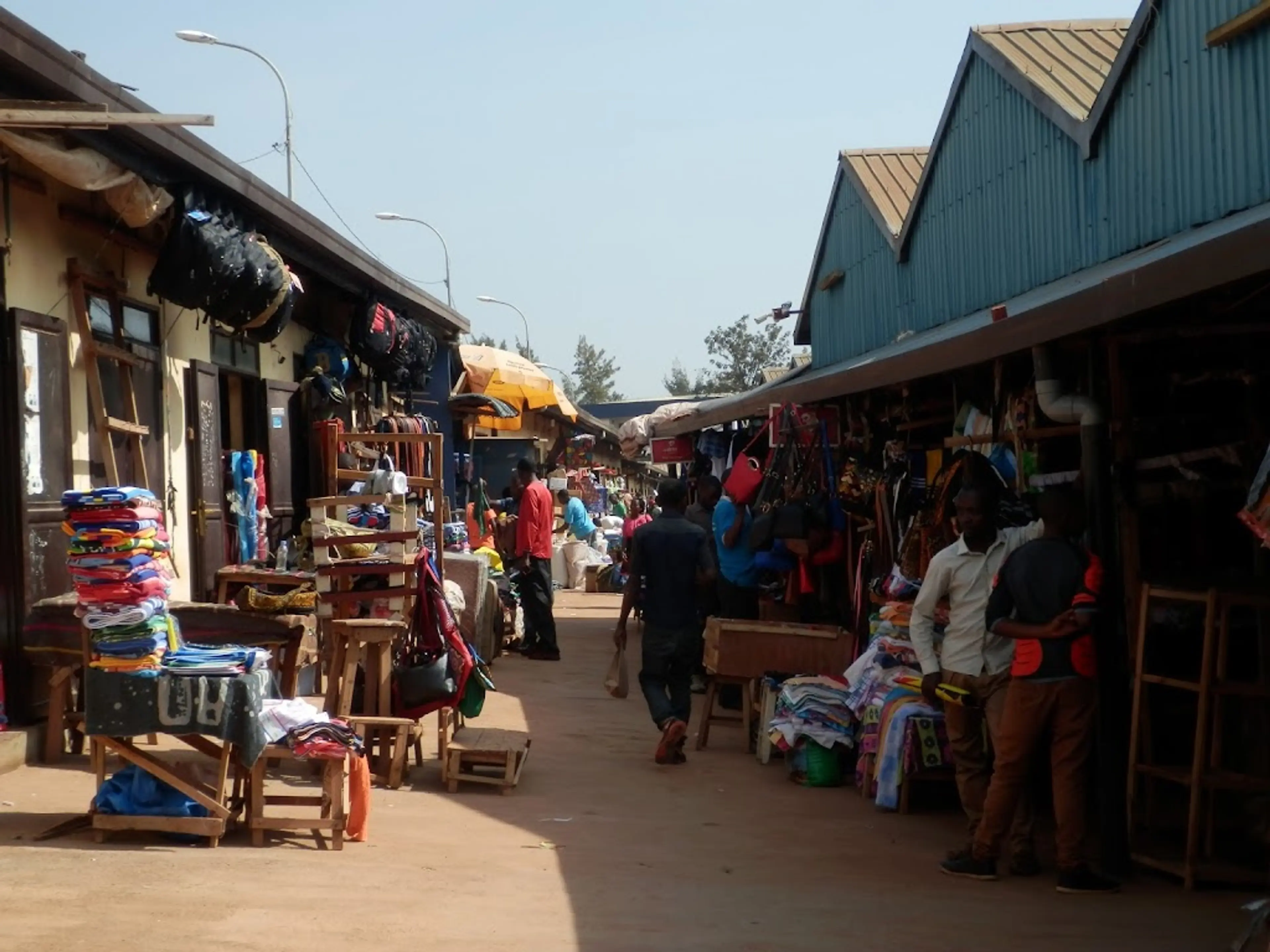
1Kimironko Market
This bustling market is a great place to experience local life, with stalls selling everything from fresh produce and spices to traditional crafts and textiles.
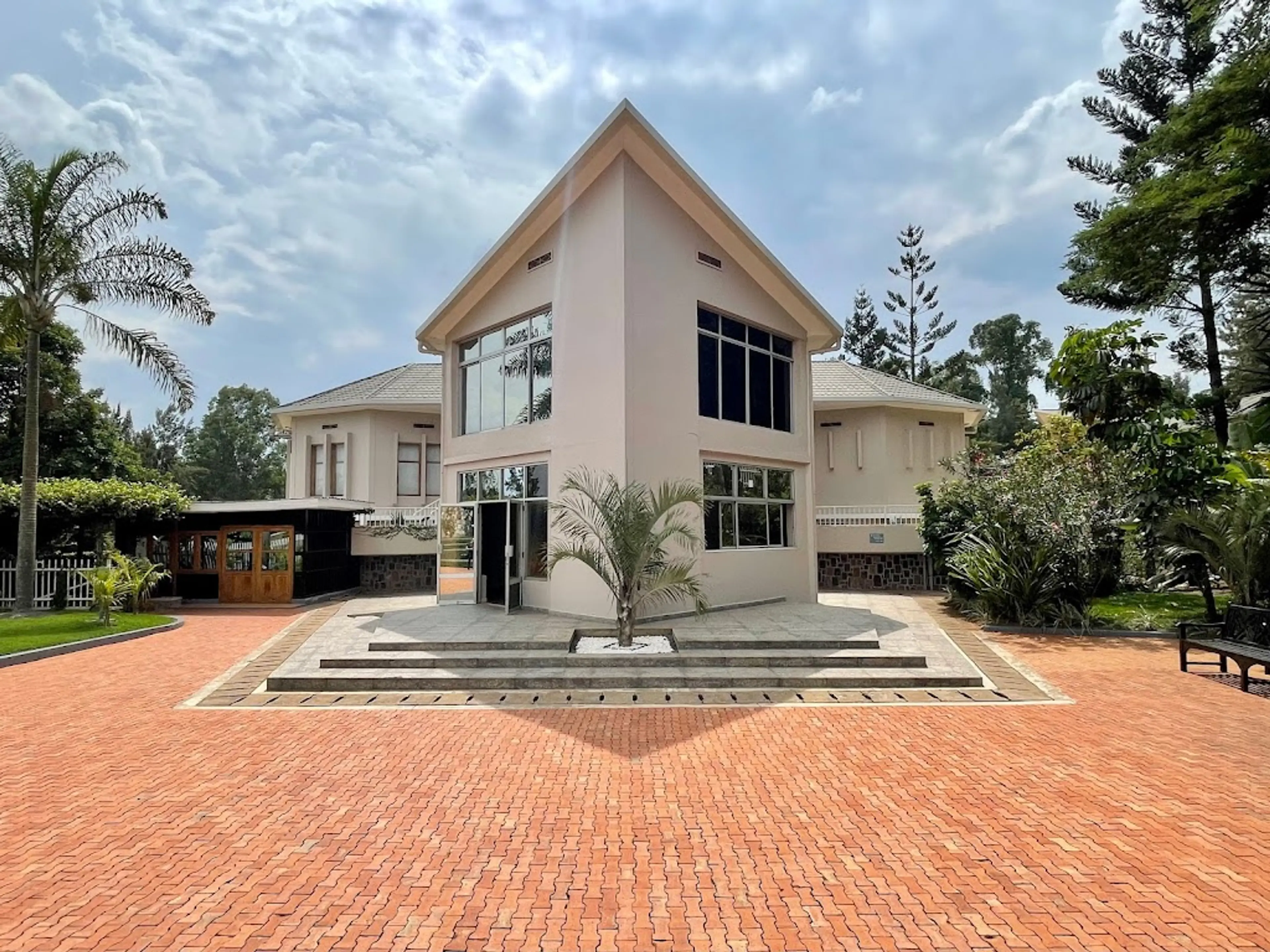
2Kigali Genocide Memorial
A poignant reminder of the 1994 genocide against the Tutsi, this memorial is a place of remembrance and learning. It houses an exhibition that tells the history of the genocide and pays tribute to its victims.

3Nightlife in Kigali
Kigali, the capital city of Rwanda, offers a vibrant nightlife with a variety of entertainment options. From lively bars and clubs to cultural performances, there's something for everyone.
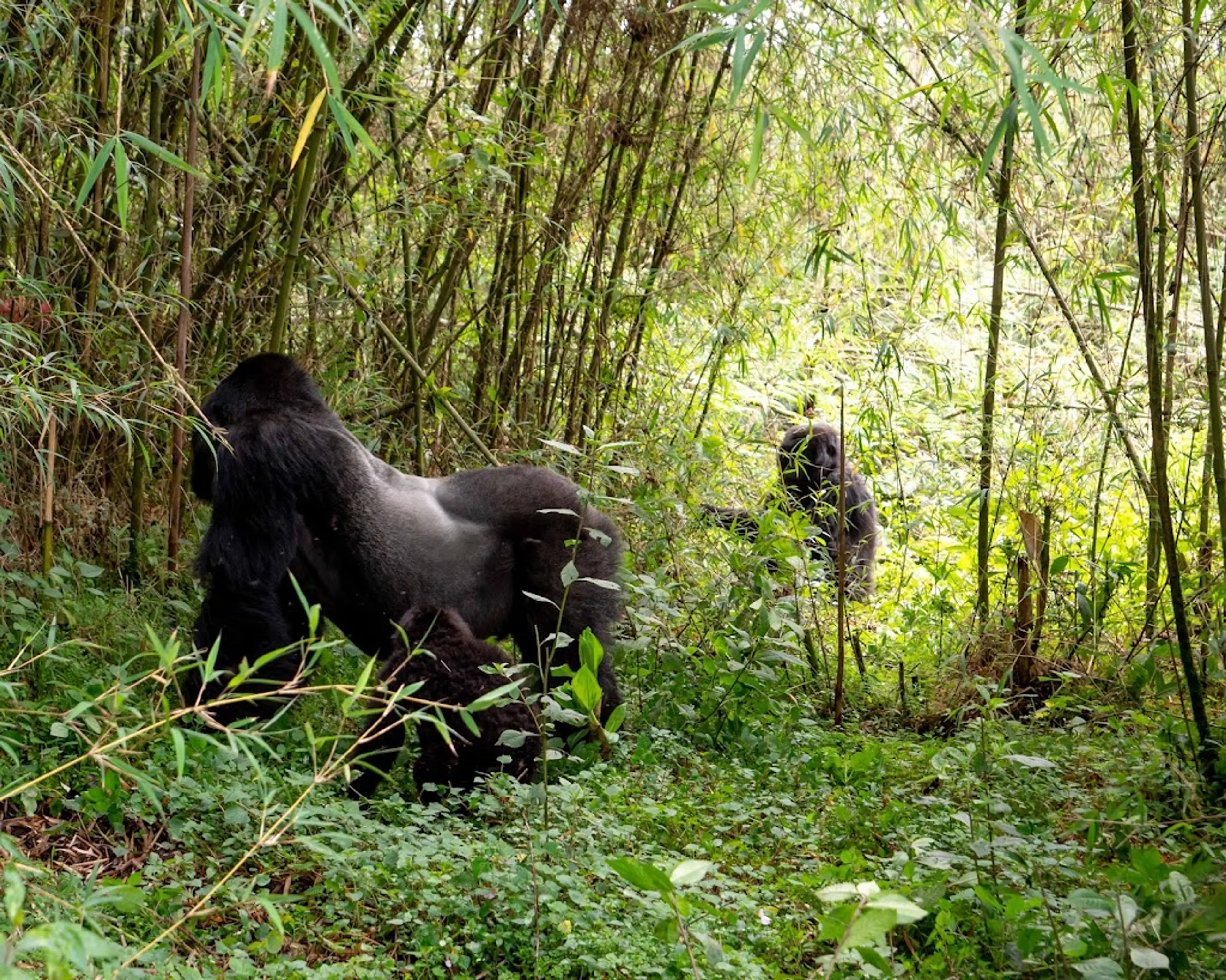
4Volcanoes National Park
Home to the endangered mountain gorillas and golden monkeys, this park offers stunning views of five of the eight volcanoes in the Virunga Mountains.
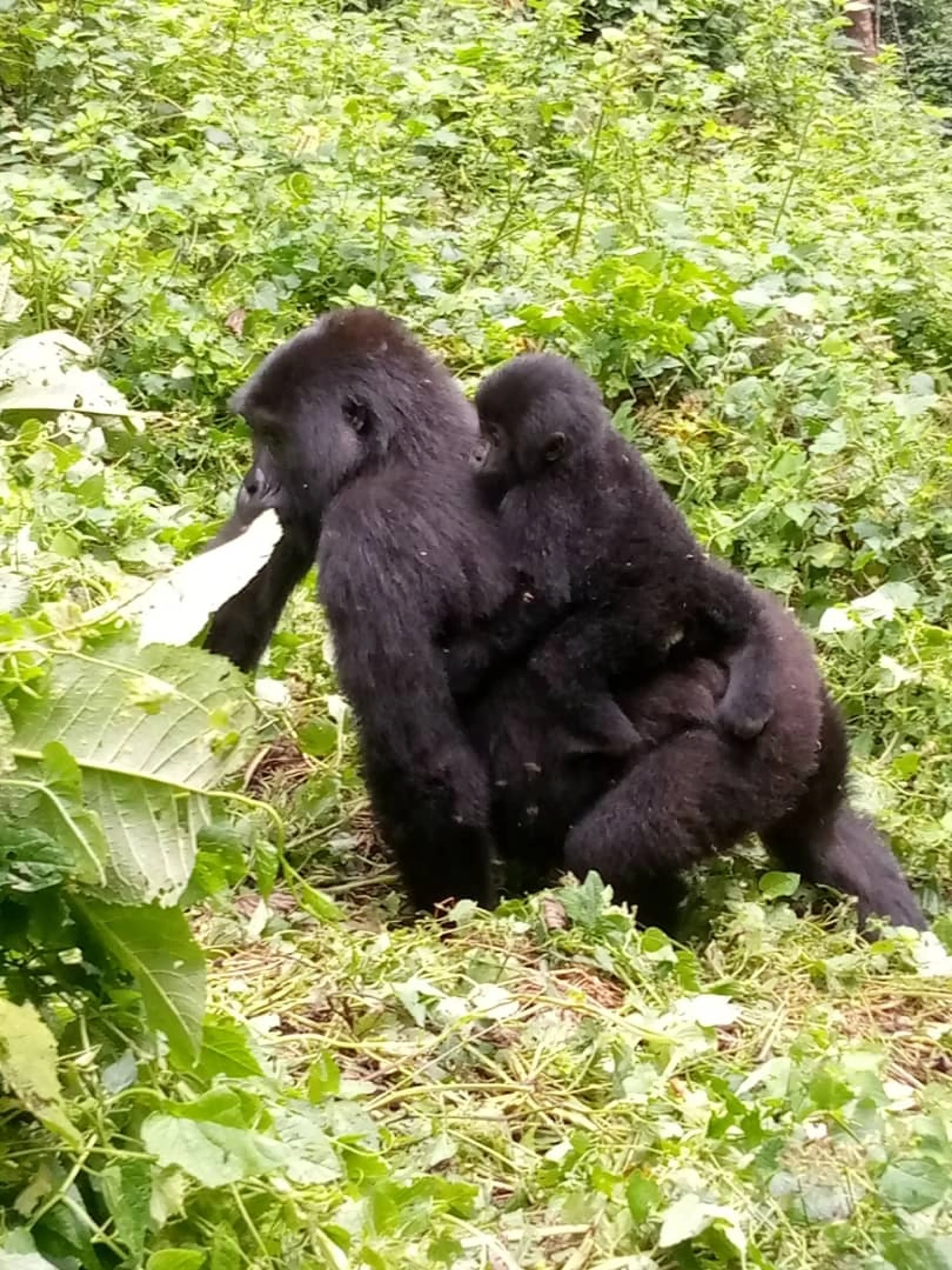
5Mountain Gorilla Trek
A thrilling journey through the dense forests of Volcanoes National Park, coming face to face with the endangered mountain gorillas.
Local Food and Drinks (10)
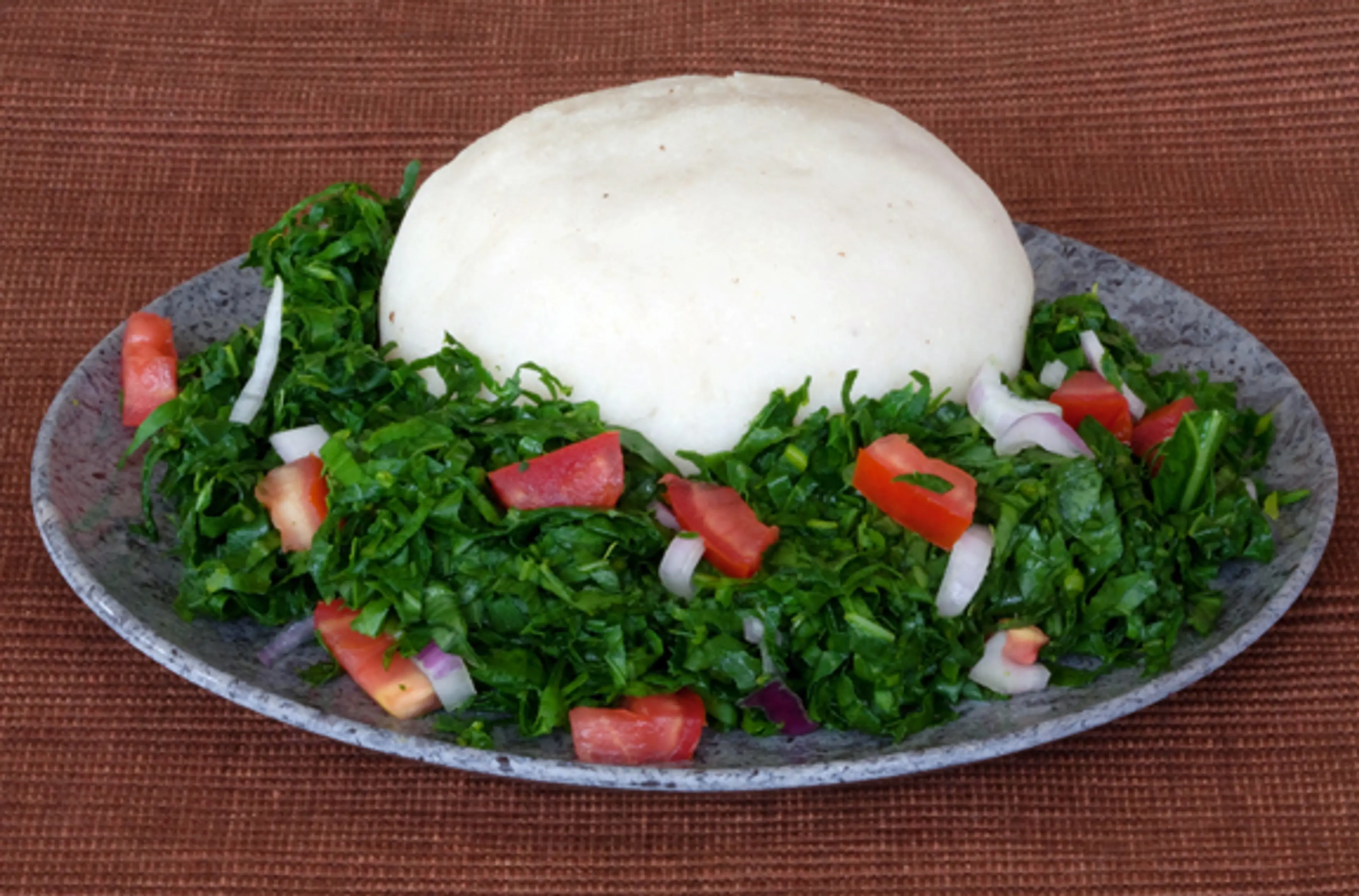
Ugali
A dense, filling dish made from maize or cassava flour, Ugali is a staple food in Rwanda and is often served with a side of vegetables or meat.

Isombe
Isombe is made from cassava leaves, peanuts, and sometimes eggplant and spinach. It's a traditional Rwandan dish that's often served on special occasions.

Matoke
Matoke is a dish made from plantains, which are cooked in a pot with some water, oil, and lemon juice. It's a staple food in Rwanda and is often served with a side of beans or meat.
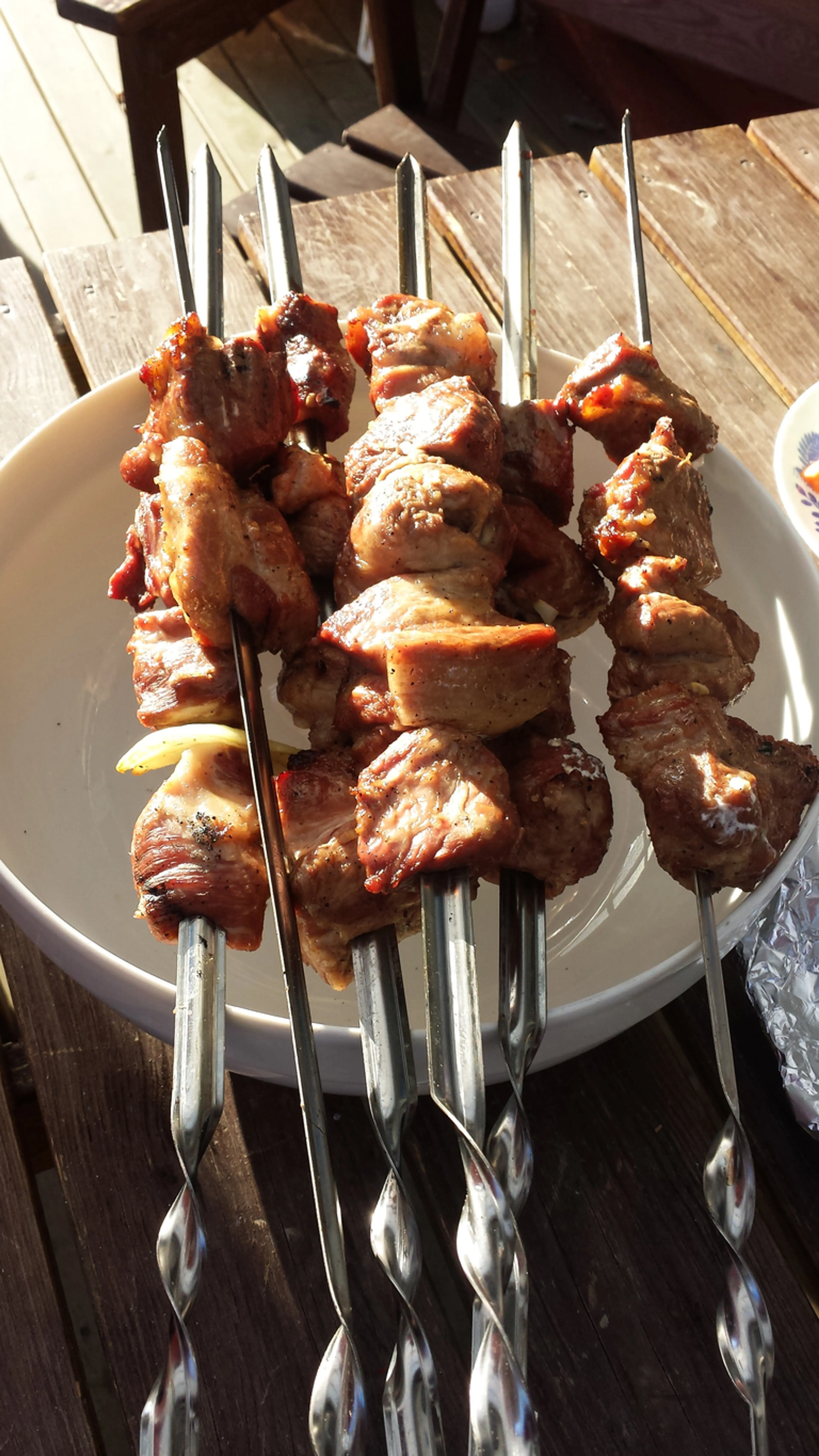
Brochettes
Brochettes are a popular street food in Rwanda. They are skewers of grilled meat, usually goat, but can also be beef or chicken.

Agatogo
Agatogo is a traditional Rwandan dish made with green bananas and often served with a side of beans or peas.

Ikivuguto
Ikivuguto is a traditional Rwandan fermented milk drink. It's often consumed after meals and is known for its probiotic health benefits.
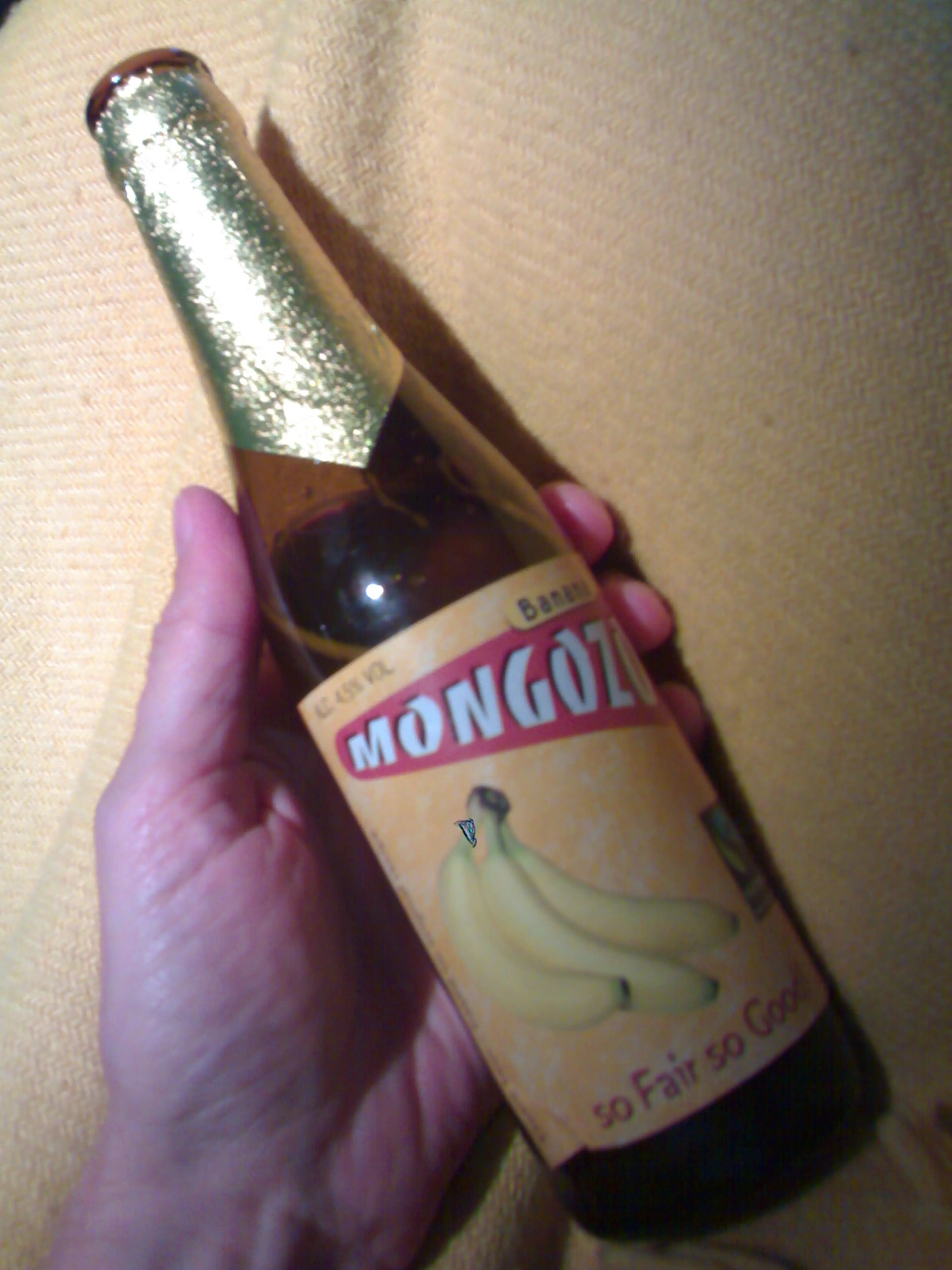
Urwagwa
Urwagwa is a traditional Rwandan banana beer. It's made from ripe bananas and sorghum flour and is often served at social gatherings and celebrations.
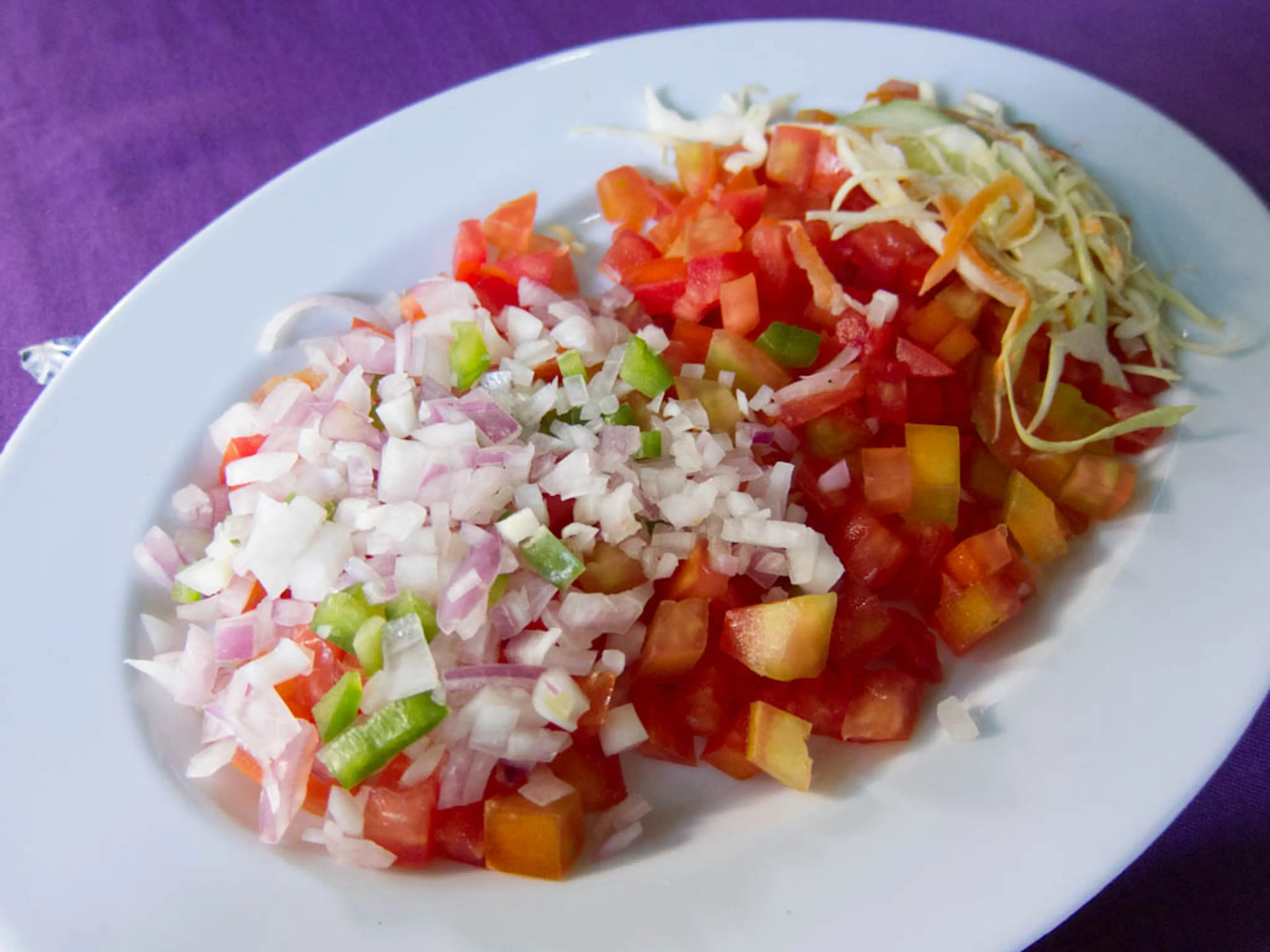
Kachumbari
Kachumbari is a fresh tomato and onion salad that's often served as a side dish in Rwanda. It's known for its refreshing taste and health benefits.

Beans and Cassava
Beans and Cassava is a staple dish in Rwanda. The beans are cooked until soft and the cassava is boiled and mashed. It's a hearty and filling meal.

Ubugari
Ubugari is a traditional Rwandan dish made from cassava or maize flour. It's a dense, filling dish that's often served with a side of beans or meat.
Best time to visit
The best time to visit Rwanda as a tourist is during the dry seasons, which are from June to September and December to February. These periods offer the best conditions for trekking and wildlife viewing. However, it's important to note that Rwanda's equatorial climate makes it a year-round destination. The wet seasons, from March to May and October to November, are also beautiful with lush, green landscapes and are perfect for bird watching.
How to get around
Car Rental
Renting a car is a popular option for getting around Rwanda. You can hire a car with or without a driver. However, keep in mind that driving in Rwanda can be challenging due to the hilly terrain and sometimes unpredictable road conditions.
Public Buses
Public buses are a common and affordable way to travel around Rwanda. They operate on fixed routes and schedules. The buses are generally safe and reliable, but can be crowded during peak hours.
Motorcycle Taxis
Motorcycle taxis, locally known as 'moto-taxis', are a quick and convenient way to get around, especially in cities like Kigali. Helmets are provided and are mandatory to wear.
Bicycle Taxis
In smaller towns and rural areas, bicycle taxis are a common form of transport. They are an affordable and eco-friendly way to get around, but may not be suitable for long distances or hilly terrains.
Ridesharing
Ridesharing services, such as YegoMoto and SafeMotos, are available in Rwanda. These services offer a convenient and safe way to get around, and can be booked and paid for via smartphone apps.
Private Taxis
Private taxis are available in major cities and tourist areas. They are more expensive than public buses or motorcycle taxis, but offer a comfortable and convenient way to travel, especially for longer distances.
Domestic Flights
For long distances, domestic flights are available. Rwanda's national carrier, RwandAir, operates flights between Kigali and other major cities.
Boats
Boats are used to get around Lake Kivu, one of the African Great Lakes. They offer a scenic and relaxing way to travel between towns and cities located along the lake's shores.
Foot
Walking is a common way to get around in Rwanda, especially in rural areas and small towns. Many locals walk to work, school, and other destinations. It's also a great way to explore and experience the local culture and scenery.
Important information
CurrencyFr RWF
Time zoneUTC+2
Driving sideRight
Emergency phoneLocal numbers only
Drinking waterOpt for bottled water
Power sockets
Voltage230 V
Things to know about Rwanda as a first time visitor
1
Rwanda is a landlocked country located in East Africa, known as the 'Land of a Thousand Hills'.
2
The official languages are Kinyarwanda, French, and English. However, English is widely spoken in urban areas and by government officials.
3
The currency used in Rwanda is the Rwandan Franc (RWF). Credit cards are accepted in major hotels and restaurants, but it's advisable to carry some cash for local markets and smaller establishments.
4
Rwanda is in the Central Africa Time Zone (CAT), which is 2 hours ahead of Greenwich Mean Time (GMT+2).
5
Rwanda has a temperate tropical highland climate, with lower temperatures than typical for equatorial countries due to its high elevation. Average daily temperatures range between 50°F (10°C) and 75°F (24°C).
6
Rwanda is generally safe for tourists. However, like any other place, it's advisable to take basic precautions such as not displaying expensive items and avoiding isolated areas at night.
7
Rwanda has a strict ban on plastic bags. It's illegal to import, produce, use or sell plastic bags and plastic packaging.
8
Rwanda's cuisine is based on local staple foods like bananas, plantains, pulses, sweet potatoes, beans, and cassava.
9
Rwanda has a well-developed public transportation system. You can travel around the country using buses, taxis, and motorcycle taxis, known as 'moto-taxis'.
10
Rwanda is one of the few countries in Africa where a visit to the gorillas is possible. However, a permit is required and should be booked well in advance.
11
Rwanda has a strong cultural heritage with traditional music, dance, and arts and crafts. The 'Intore', a traditional dance, is a highlight of cultural performances.
12
Rwanda has a dress code that is generally conservative. It's advisable to avoid revealing clothes.
13
Rwanda has a good healthcare system in comparison to other African countries. However, it's recommended to have travel insurance that covers medical evacuation.
14
Rwanda is two hours ahead of Greenwich Mean Time (GMT+2). There is no daylight saving time.
15
Rwanda has a strong emphasis on cleanliness. The last Saturday of every month is a national clean-up day known as 'Umuganda'.
16
Tipping is not a common practice in Rwanda, but it is appreciated. A 5-10% tip is sufficient in restaurants and hotels.
17
The Rwandan Genocide, a tragic event in the country's history, is commemorated every year in April. It's important to be respectful during this period.
18
Rwanda's electricity runs on 230 volts and the plug type is Type C or Type J. It's advisable to bring a universal adapter.
19
Internet access is widely available in Rwanda, especially in urban areas. Most hotels, restaurants, and cafes offer free Wi-Fi.
20
Rwanda requires a visa for most foreign visitors. It's advisable to check the visa requirements before your trip.
Basic Kinyarwanda, French, English, Swahili to know as a first time visitor
English phrase | Native phrase | Pronunciation | When to use it |
|---|---|---|---|
Hello | Muraho | Moo-rah-ho | Greeting someone |
Goodbye | Murabeho | Moo-rah-be-ho | Leaving someone |
Please | Mwihanganye | Mwee-han-gan-ye | Making a request |
Thank you | Murakoze | Moo-rah-koh-zeh | Expressing gratitude |
Yes | Yego | Yeh-go | Agreeing with someone |
No | Oya | Oh-ya | Disagreeing with someone |
Excuse me | Mbabarira | Mbah-bah-ree-rah | Getting someone's attention |
I'm sorry | Ndababarira | Nda-bah-bah-ree-rah | Apologizing |
Do you speak English? | Uvuga icyongereza? | Oo-voo-gah ee-chohn-geh-reh-zah? | Asking if someone speaks English |
I don't understand | Simbyumva | See-mbyoom-vah | When you don't understand something |
Help | Ubufasha | Oo-boo-fah-shah | When you need assistance |
Where is the bathroom? | Ishuri ni hehe? | Ee-shoo-ree nee heh-heh? | When you need to find a bathroom |
How much does this cost? | Nanga iyi ni ihe? | Nan-gah ee-yee nee ee-heh? | When you want to know the price of something |
I would like... | Nshaka... | Nshah-kah... | When you want something |
Food | Ibiryo | Ee-bee-ryo | When you're talking about food |
Water | Amazi | Ah-mah-zee | When you're talking about water |
Good | Meza | Meh-zah | Describing something as good |
Bad | Bibi | Bee-bee | Describing something as bad |
Beautiful | Byiza | Bee-za | Describing something as beautiful |
Today | Uyu munsi | Oo-yoo moon-see | Talking about the current day |
Packing List
Clothing
Lightweight clothing
Long-sleeved shirts
Long pants
Underwear
Socks
Comfortable walking shoes
Rain jacket or umbrella
Swimwear
Sunglasses
Hat for sun protection
Toiletries
Toothbrush and toothpaste
Deodorant
Shampoo and conditioner
Body wash or soap
Razor and shaving cream
Sunscreen
Insect repellent
First-aid kit
Prescription medications
Hand sanitizer
Travel documents and essentials
Passport
Visa if required
Travel insurance documents
Flight tickets
Hotel booking confirmation
Emergency contact information
Local currency
Credit and debit cards
Driver's license
Electronics and gadgets
Smartphone
Charger for smartphone
Power bank
Camera
Charger for camera
Headphones or earbuds
Travel adapter
Miscellaneous items
Travel guidebook
Snacks
Bottled water
Travel pillow
Earplugs
Eye mask
Reusable shopping bag
Notebook and pen
Books or e-reader for entertainment
Weather Conditions
Rwanda, often referred to as the "Land of a Thousand Hills," is a country with a temperate tropical highland climate, which means it experiences cooler temperatures than typical tropical countries. The average daytime temperature is around 75°F (24°C), while at night, it can drop to around 54°F (12°C). Rwanda has four seasons: long dry season (June to September), short rainy season (October to November), short dry season (December to January), and long rainy season (February to May). However, it's important to note that Rwanda's weather can be quite unpredictable, and rain showers can occur even during the dry seasons. If you're planning to visit Rwanda's famous mountain gorillas, the best time to do so is during the dry seasons, when the hiking paths are less muddy and the visibility is better. However, these are also the peak tourist seasons, so expect higher prices and more crowded conditions. If you're visiting during the rainy seasons, pack a waterproof jacket, sturdy waterproof shoes, and an umbrella. Even during the dry seasons, it's a good idea to carry a light rain jacket, as rain showers can occur unexpectedly. Despite the occasional rain, Rwanda's weather is generally pleasant and mild, making it a great destination to visit year-round. Just remember to pack accordingly and stay updated on the current weather conditions during your trip.
| Month | Hi / Lo (°C) | Weather Overview |
|---|---|---|
January | 25° / 15° | January is a dry month in Rwanda, making it a great time to visit for wildlife viewing and gorilla trekking. |
February | 26° / 15° | February is also a dry month, with slightly warmer temperatures, perfect for outdoor activities. |
March | 26° / 16° | March marks the start of the long rainy season, but it's still a good time to visit as the rain usually falls in short bursts. |
April | 25° / 16° | April is the wettest month in Rwanda, but the rain brings lush landscapes and fewer tourists. |
May | 25° / 16° | May sees the end of the long rainy season, with the weather starting to dry up towards the end of the month. |
June | 25° / 15° | June is the start of the dry season, with clear skies and pleasant temperatures, ideal for wildlife viewing. |
July | 25° / 15° | July is one of the driest and coolest months, making it a popular time for tourists to visit. |
August | 25° / 15° | August continues the dry season, with great wildlife viewing conditions and comfortable temperatures. |
September | 25° / 15° | September is a dry month, with warm days and cool nights, perfect for outdoor activities. |
October | 26° / 15° | October marks the start of the short rainy season, but the rain is usually light and won't affect your travel plans much. |
November | 26° / 16° | November is a rainy month, but it's a great time to visit for birdwatchers as migratory birds arrive. |
December | 25° / 15° | December is a dry month, making it a great time to visit for wildlife viewing and gorilla trekking. |
Did you know?
Places near by Rwanda

Bujumbura
The capital city of Burundi, known for its vibrant nightlife and beautiful beaches on the shores of Lake Tanganyika.

Kigoma
A port town on the shores of Lake Tanganyika, known for its bustling market and historical sites.
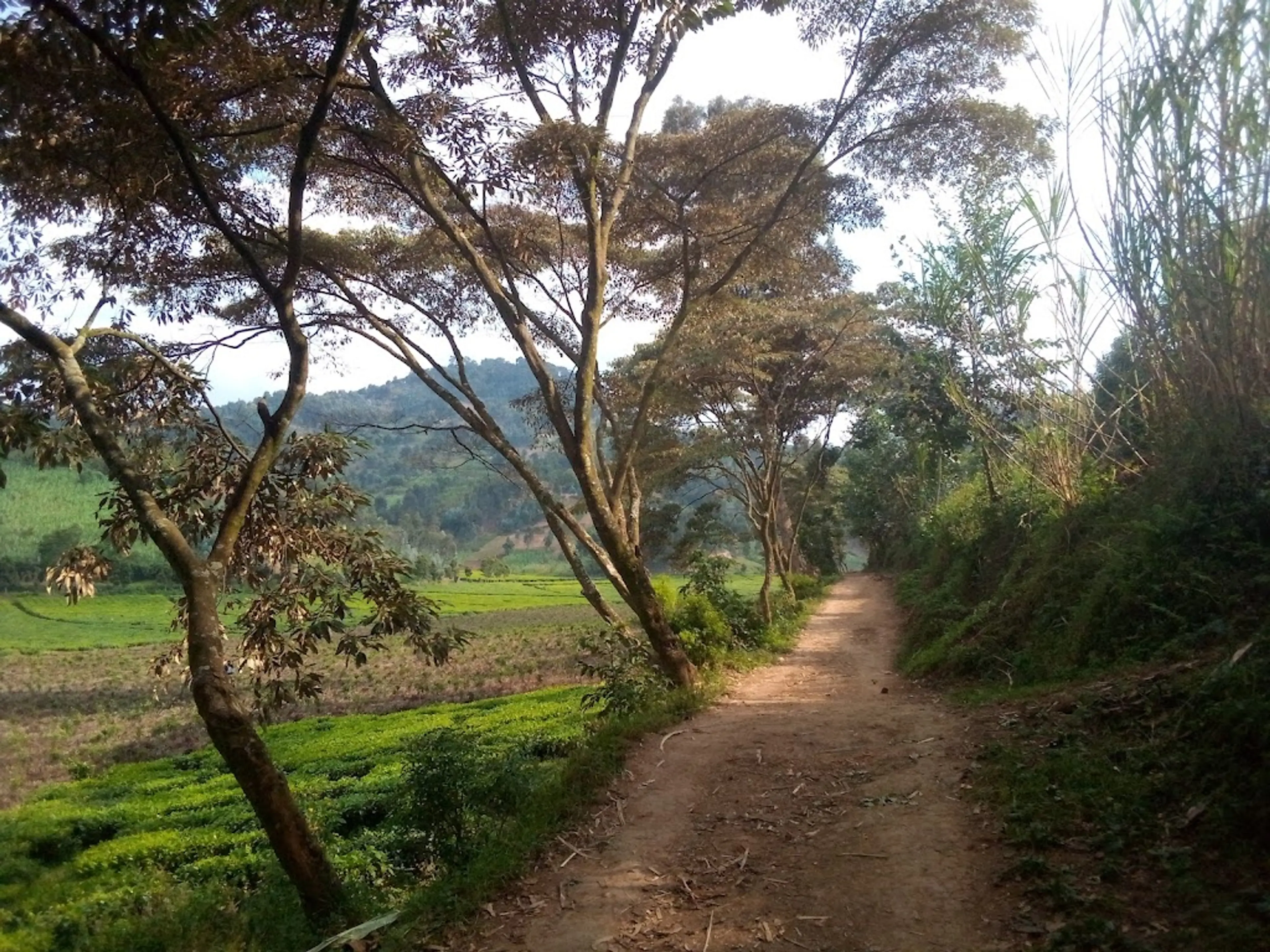
Gisenyi
A scenic town on the shores of Lake Kivu, known for its beautiful beaches and hot springs.

Kampala
The capital city of Uganda, known for its vibrant nightlife and rich cultural heritage.
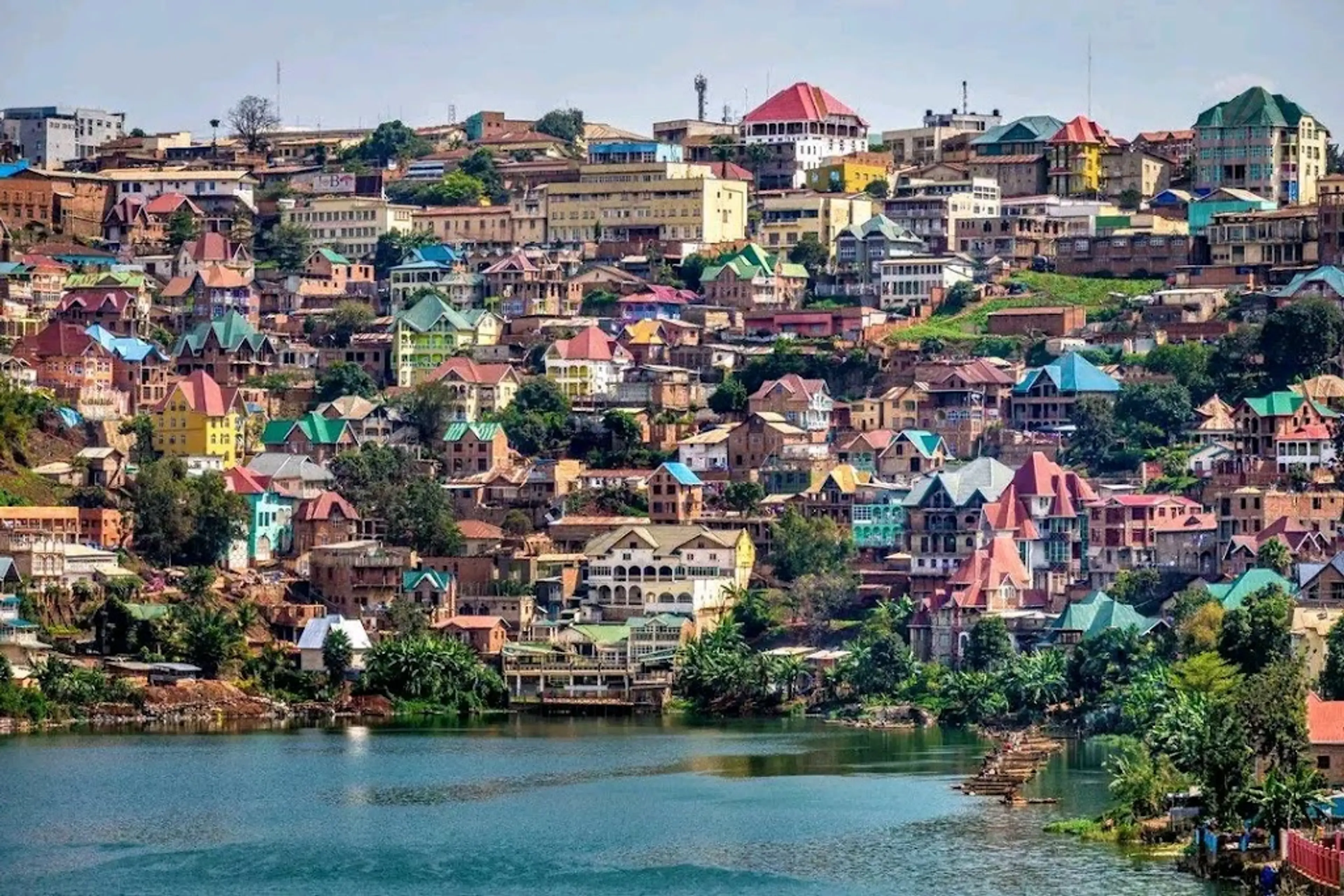
Bukavu
A city on the southern shore of Lake Kivu, known for its colonial-era architecture and nearby national parks.

Entebbe
A major town in Uganda, known for its botanical gardens and wildlife conservation centres.

Mwanza
A port city on the shores of Lake Victoria, known for its unique rock formations and vibrant local markets.